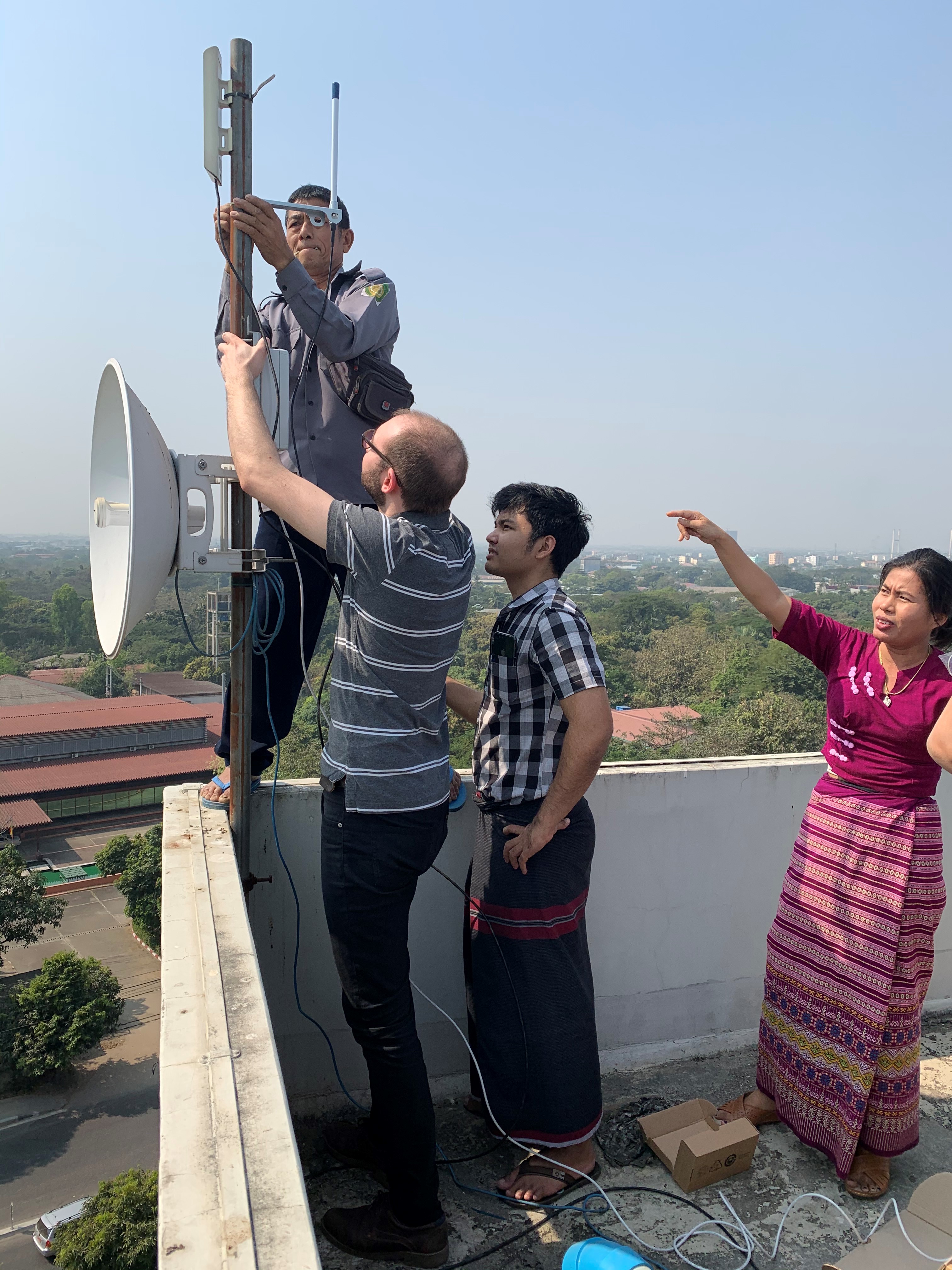Internet of Things workshop
One simple sensor can tell you a lot of relevant information about your water system
NEWS - January 2020 Professor Nick van de Giesen together with Dirk van der Lubbe-San Juan visited Yangon to give a 2-day workshop at the Yangon Technological University (YTU) on so-called “internet of things”. A seemingly abstract concept, but actually everywhere we are surrounded by chips, devices and sensors that can talk to us and that can talk to each other. We find many of them in our smartphones, cars and other devices. The aim of this workshop was to better understand sensors and to be able to build a simple sensor yourself, understand the steps to transform data into information and apply that for better water management in Myanmar. With relatively simple sensors one can measure water levels, water quality, monitor reservoirs and many other applications. Given the scarcity of data in Myanmar, it is very relevant to have the skills and knowledge to collect more data in order to make better decisions – and due to rapid technological developments, data collection can be done much easier, faster and cheaper. More than 20 Myanmar water professionals and scientists participated in this workshop.
As Professor Nick van de Giesen explained: “The sensors and systems we will work with in this workshop are modern and innovative. They are all technologies and systems that are really happening now. For Myanmar, it is very interesting since they have the opportunity to skip older technologies and “leapfrog” to the usage of these smart technologies”. In the workshop, the participants (coming from several water departments and universities) learned how to program and build their own sensors. By doing this themselves, the participants gained better insight into the whole chain, making them understand and experience how one can get from data to relevant information. Next to making small sensors themselves, we installed several innovative rainfall gauges at the campus of YTU so that data collection and measuring will be linked to the curriculum as well. At the end of the workshop, the different teams shortly presented their work in the presence of the rector of YTU and explained what they have learned and developed. In the future, we hope the participants got inspired to use these tools in the future for other purposes.
